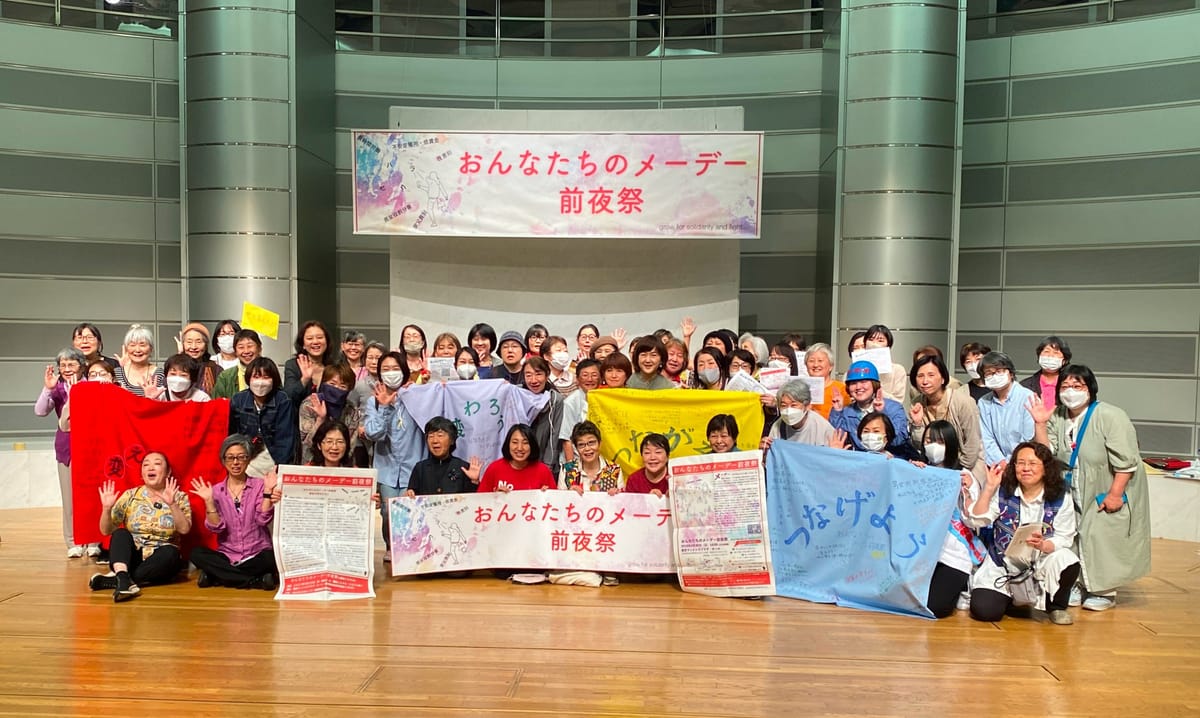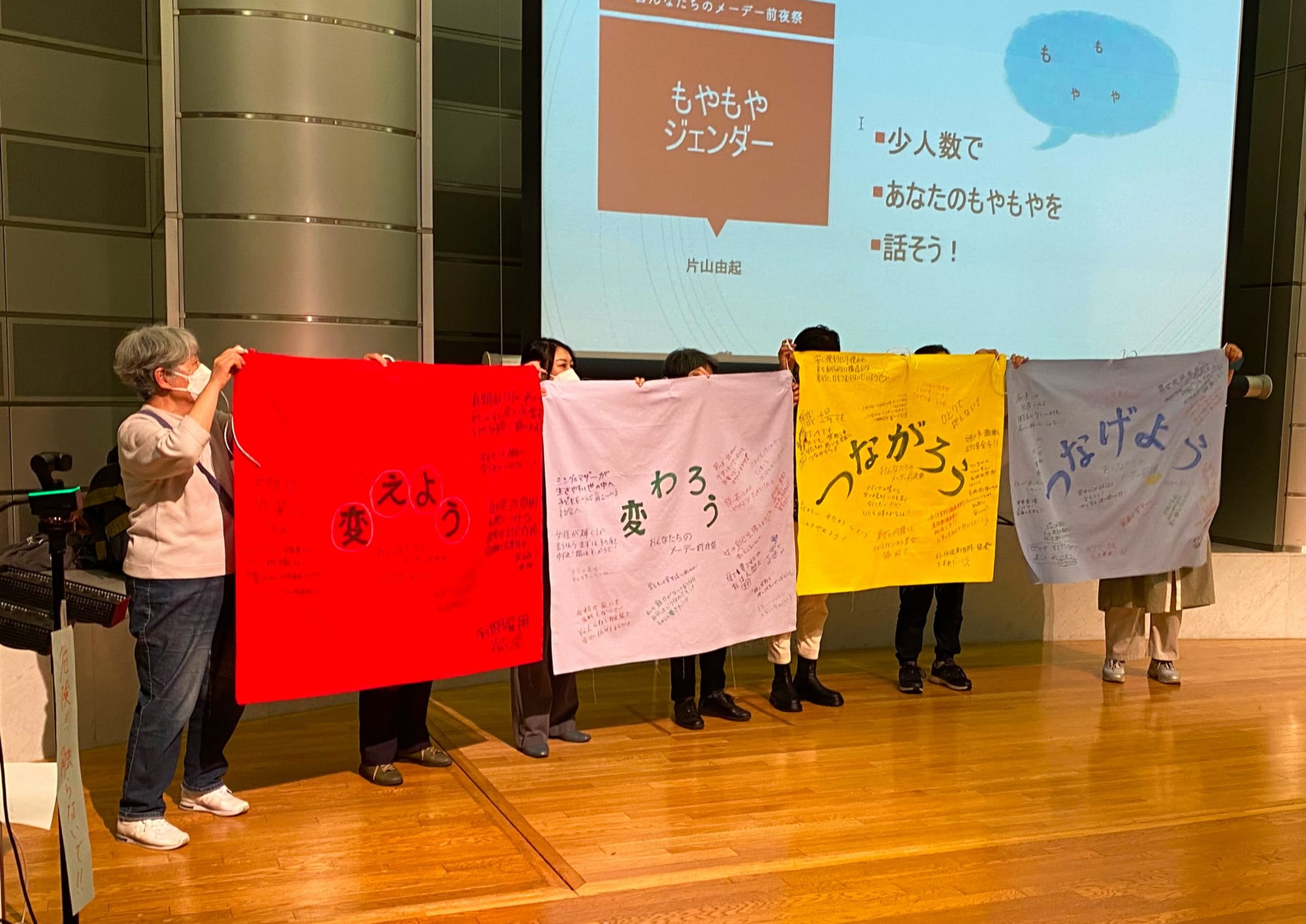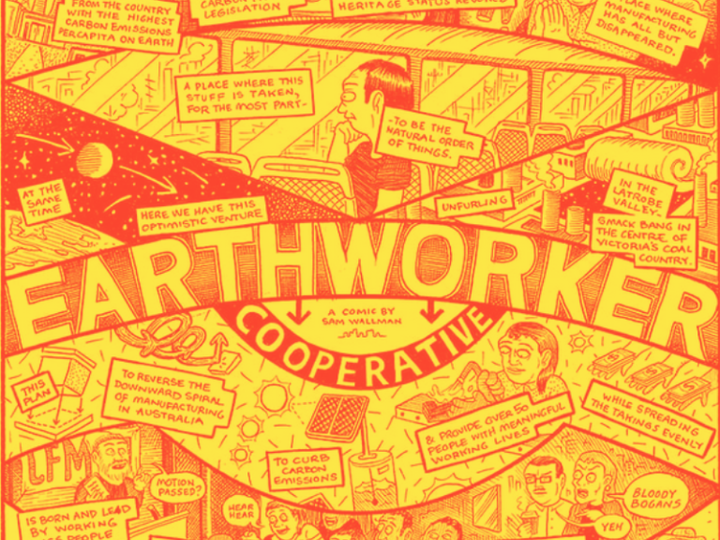May Day Eve Celebration Honors Women’s Unsung Labor

May Day Eve for Women was organized to recognize and re-evaluate unpaid and underappreciated domestic and care work in and outside of their homes. Held on April 30, the day before traditional labor celebration on May Day, in Tokyo’s Shibuya Ward, the event was for labor union members and others to empower women whose contributions have long been ignored or considered less valuable than those of their male counterparts. .
“Women in Japan sleep the least among OECD (Organization for Economic Cooperation and Development) countries,” said Nakajima Yumiko, president of the National Union of General Workers Tokyo Nambu, one of the organizers of the event. “Women work long hours inside and outside the home, and that may be worse than the situation workers struggled against in 1886. Let’s mark this day as the beginning of a new history.”
The event organizers named it May Day Eve because women’s labor rights and human rights have not yet been fully recognized, they said.
It also provided an opportunity to draw attention to the gender inequality still widespread in Japan, especially in regards to unpaid work primarily done by women. This includes house chores, childcare and caregiving, as well as an increase of precarious work situations,such as jobs with no guarantee of social security, a living wage, or those offering only short-term contracts, in the fields dominated by women. Japan ranked 125th of 146 countries in the 2023 gender gap index – the worst in the nation’s history, it was announced in June by the World Economic Forum.
A non-regular worker at a government employment agency talked about persistant sexual advances from a male colleague who offered to pay for her child’s school tuition in exchange for sexual favors.
A precarious contract that could simply end in three years or require her to reapply for her position in three years puts her in a vulnerable position. She fears losing her job if she does not carefully resist his advances, she reported.
Aside from the experience, she always feels anxious about not being able to plan for her future without any wage increase or longevity of her employment.
At companies, women were often subjected to senseless remarks when pregnant, a retiree recalled. She was told it was time for her to retire when she was ready to take maternity leave in the 1970s.
Times have not changed much since.
Married or single, women are treated as less than a whole person and considered incomplete without a male.
“All you need is to cook, and many men would wish to take care of you.” A single mother reported that a male colleague said this to her.
 Credit: May Day Eve for Women organizing committee
Credit: May Day Eve for Women organizing committee Four banners saying, “Let’s change,” “Let’s make changes,” “Let’s connect” and “Let’s get connected” have comments written by participants.
Gendered roles are expected and molded in society.
The event participants discussed how paired rice bowls and tea cups often come with one smaller than the other for women or how house chores are not considered “work” as they are often women’s duties and subsequently unpaid and unrecognized.
Through group discussions and workshops, participants learned how they can liberate themselves from gender bias through some exercises and re-evaluate the underappreciated work of women.
“I tried to tell myself that my responsibility was to raise my sons healthy,” one full-time homemaker said. “Because I worked at home most of the time, I felt for a long time that I was invisible. Today, I can finally say that I also help run this society.”
May Day Eve for Women is also scheduled for next year.



